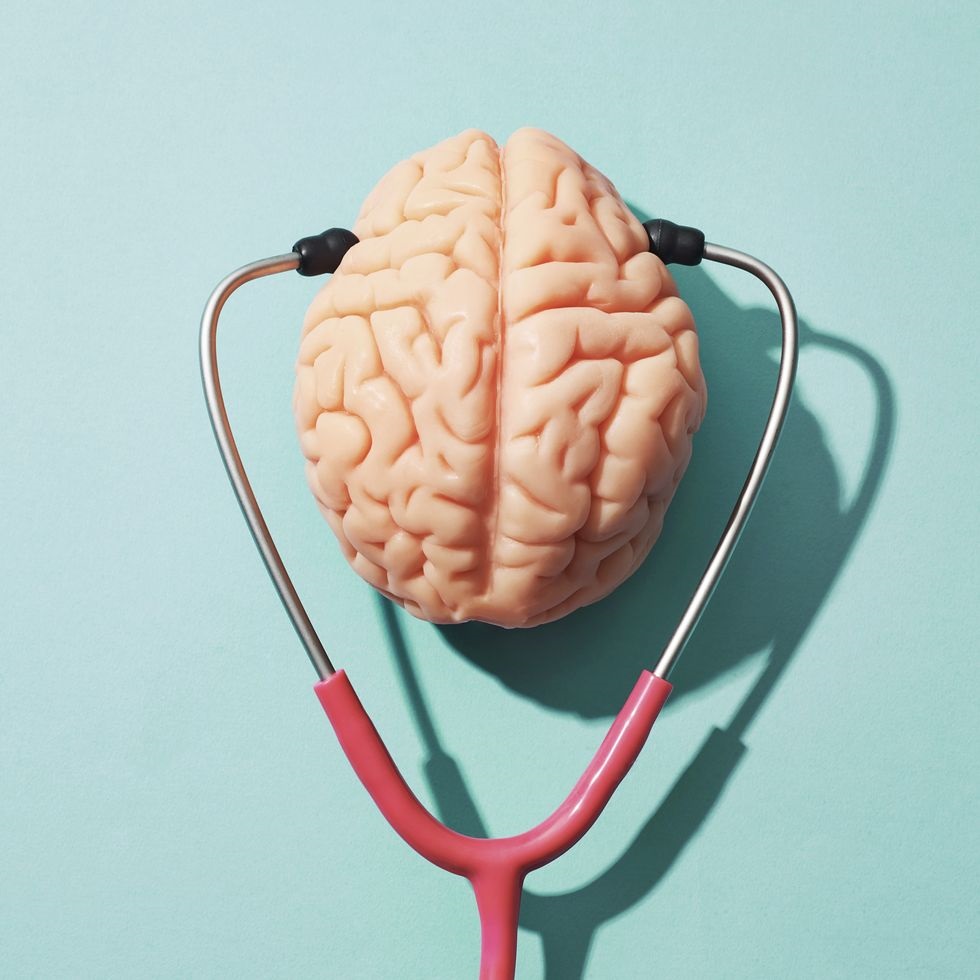Get Sharp: Here’s How You Can Boost Your Brain Health

December 31, 2018
We all set similar goals each year – save more money, eat healthier, exercise more often – in hopes of becoming the best version of ourselves in the days, weeks and months ahead. Even though we’ve all felt foggy from time to time, there is one goal we don’t see often enough: Better brain health.
We recently spoke to Neurology Division chief, Tommasina Papa-Rugino, M.D., of Southern Ocean Medical Center, and asked one simple question, is it possible to train your brain to function better?
With over 25 years practicing and studying neuroscience, Dr. Papa-Rugino shared a few useful tips and tricks to get your brain functioning at its highest level in 2019.
Devote More Quality Time To Friends, Family
That’s right – going out and socializing with friends and family is just what the doctor ordered.
“Having a strong network of family and friends is proven to be good for your overall health; this includes lowering blood pressure and reducing risk for depression. But what’s also important to note, is that having strong social ties is also beneficial for your brain health,” shares Dr. Papa-Rugino. “Spending time with others has been associated with lowering your risk of developing memory disorders like dementia.”
One thing to keep in mind while you’re out socializing is to keep your alcohol intake in check. Even though drinking commonly occurs when going out with friends, Dr. Papa-Rugino reminds us that an excess of alcohol can reverse the positive effects of socialization. Abusing alcohol is toxic to the brain and can lead to neuron death, which can cause memory loss and even dementia.
Break New Ground
“As a child, when you grow and learn, you’re building something called your cognitive reserve – this is your brain’s ability to process a situation and essentially, decipher the best means for getting a job done. It allows for versatility in processing and accomplishing tasks,” shares Dr. Papa-Rugino. “Those who take on new activities, and experience new situations continue expanding their cognitive reserve.”
Try activities that stimulate your brain, like word puzzles and reading, as well as activities that may require manual dexterity like drawing, knitting or other activities that activate your fine motor skills.
Protect your Noggin
This may seem like a no-brainer (pun intended), however it’s important to remember to keep your head protected from injury.
“Particularly if my patients engage in physical activities that can make them more prone to injury, like road cycling or rock climbing, it’s imperative that they wear the appropriate protective head gear,” advises Dr. Papa-Rugino. “Especially in the New Year, folks who embark on new health and fitness goals may be trying activities they’ve never engaged in before. It’s critical that they project themselves from injury.”
Children and adults alike are at risk for traumatic brain injury (TBI), which can be caused by bump or blow to the head. A TBI disrupts the normal function of the brain and can cause cognitive issues like difficulty concentrating or comprehending, as well as impaired memory function.
Get Back to Basics
“And of course, I always remind my patients of the basics for healthy habits – nutrition, exercise and sleep,” shares Dr. Papa-Rugino.
“Your heart’s health will play a major role in your brain health – which is why high blood pressure, diabetes and obesity are a threat to keeping your brain well,” warns Dr. Papa-Rugino. Create meals that contain fruits and vegetables, and focus on including healthy fats like olive oil, nuts, seeds, avocados and certain types of fish like salmon or tuna.
Another component of brain and heart health is exercise. Dr. Papa-Rugino mentions, “Physical activity can promote the growth of neurons (nerve cells) as well as the connectivity between them (synapses), which results in better brain function and memory.”
“Poor sleep can also influence brain function – try to abstain from bringing electronics into the bedroom, and maintain a consistent sleep schedule,” advises Dr. Papa-Rugino. “During sleep, cerebrospinal fluid flows through brain, clearing away toxins and protein buildup that happens during the day. This is critical to maintaining good brain health.”
If you have trouble sleeping, learn more about sleep medicine or make an appointment with one of Hackensack Meridian Health’s sleep specialists by visiting HackensackMeridianHealth.org/Sleep-Medicine.
To learn more about brain health or the services provided by Hackensack Meridian Health, visit HackensackMeridianHealth.org/Neurosciences.
The material provided through Health Hub is intended to be used as general information only and should not replace the advice of your physician. Always consult your physician for individual care.
Find a doctor near me
What Causes Brain Freeze?

Brain freeze explained. Dr. Krel shares causes, prevention tips, and when to seek help for headaches. Learn more.
Can Hay Fever Affect Your Brain?

Hay fever impact on brain function explored. Learn how allergies may affect memory from Dr. Roche. Read more.
Find a doctor near me

Do Brain-Training Games Really Boost Brain Power?
Boost your brainpower! Learn how brain training games and healthy habits improve memory and focus. Dr. Parulekar shares expert advice. Call 800-822-8905.

What Makes a Child Tic?
Understand child tics? Dr. Khrizman explains causes, management, and when to seek help. Learn more and find support.

How Isolation Can Affect Cognitive Function
Combat isolation's impact on cognitive function. Dr. Kera offers tips for improved brain health & connection. Learn strategies to boost memory & focus.

How to Beat Brain Fog
Beat brain fog. Dr. Duncan offers tips for improved focus and memory. Learn strategies for better sleep and cognitive health. Call 800-822-8905.
